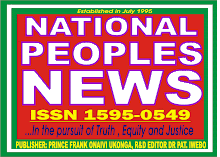 |
| His Excellency President Jacob Zuma of South Africa. |
In his speech on the opening day of the General Assembly in New York, Mr Zuma also argued against any changes in "the rules of the game", which define aid from rich nations to poor ones.
South Africa is one of the middle-income countries that are worried that their share of the development cake will shrink prematurely due to the global recession.
The General Assembly is a giant annual talk fest for leaders of the 200 or so UN member states. As they spend a week taking it in turns to relate their national achievements and plans for achieving world peace, the streets of Manhattan outside the UN enclave are paralysed by presidential limousines and police roadblocks.
The only New Yorkers not grumbling about the chaos are the ones counting the dollars pouring into the Big Apple’s hotels, restaurants and shops.
The traffic jams and security were even more daunting on Tuesday as US President Barack Obama came to speak to the UN — which has fiercely resisted his Syria policy. The UN could be credited for preventing a military intervention by the US and its allies after chemical weapons were used against pro-opposition Syrian civilians last month.
Mr Zuma, whose entourage — including journalists — is being accommodated with him in a luxury hotel next to Central Park, was 14th to speak. "In close to 70 years after its establishment, the UN Security Council still remains undemocratic, unrepresentative and unfair to developing nations and small states," he said, voicing the view of many states that the 15-member council can no longer be dominated by the "Big Five".
Since it was created in 1948, in the aftermath of the Second World War, the Security Council has had the same five permanent members — China, Russia, the US, France and the UK — with veto powers allowing them individually or together to block any resolution.
"We cannot remain beholden indefinitely to the will of an unrepresentative minority on (the) most important issues of international peace and security," Mr Zuma said.
Every General Assembly has its theme — this year’s being to chart a course for development after 2015 — although each year current news tends to disrupt the best-laid plans. This year will be remembered for Syria and the possible rapprochement of Iran and the US after three decades of hostility.
Mr Obama said in his wide-ranging speech on Tuesday that there should be a basis for an agreement about Iran’s nuclear ambitions — fiercely opposed by Washington -— but added that the roadblocks would be difficult to overcome.
Iranian president Hassan Rouhani is in New York for the assembly.
Mr Obama and Mr Zuma joined other leaders in offering their condolences and support to Kenya over Saturday’s attack on a Nairobi mall by Somali gunmen who killed scores of people.
Mr Zuma’s speech was largely pinned on the theme of what to do after the end-2015 deadline for achieving Millennium Development Goals such as ending poverty and ensuring universal education.
Mr Zuma rejected the term "expiry" when referring to the existing goals, many of which will not be met by developing countries. He said the global economic meltdown which began in 2008 had fostered a "tendency to renegotiate the rules of the game".
"New issues are being introduced as prerequisites for development … These include the green economy and clean technology, as well as good governance, peace and security and human rights," Mr Zuma said.
"We are aware of the challenges in the North due to the economic meltdown, but are of the view that investing in development in the South, especially in Africa, is of primary importance as a source of much-needed sustainable development and stability in the world."
adapted from Business Day South African edition









Post a Comment